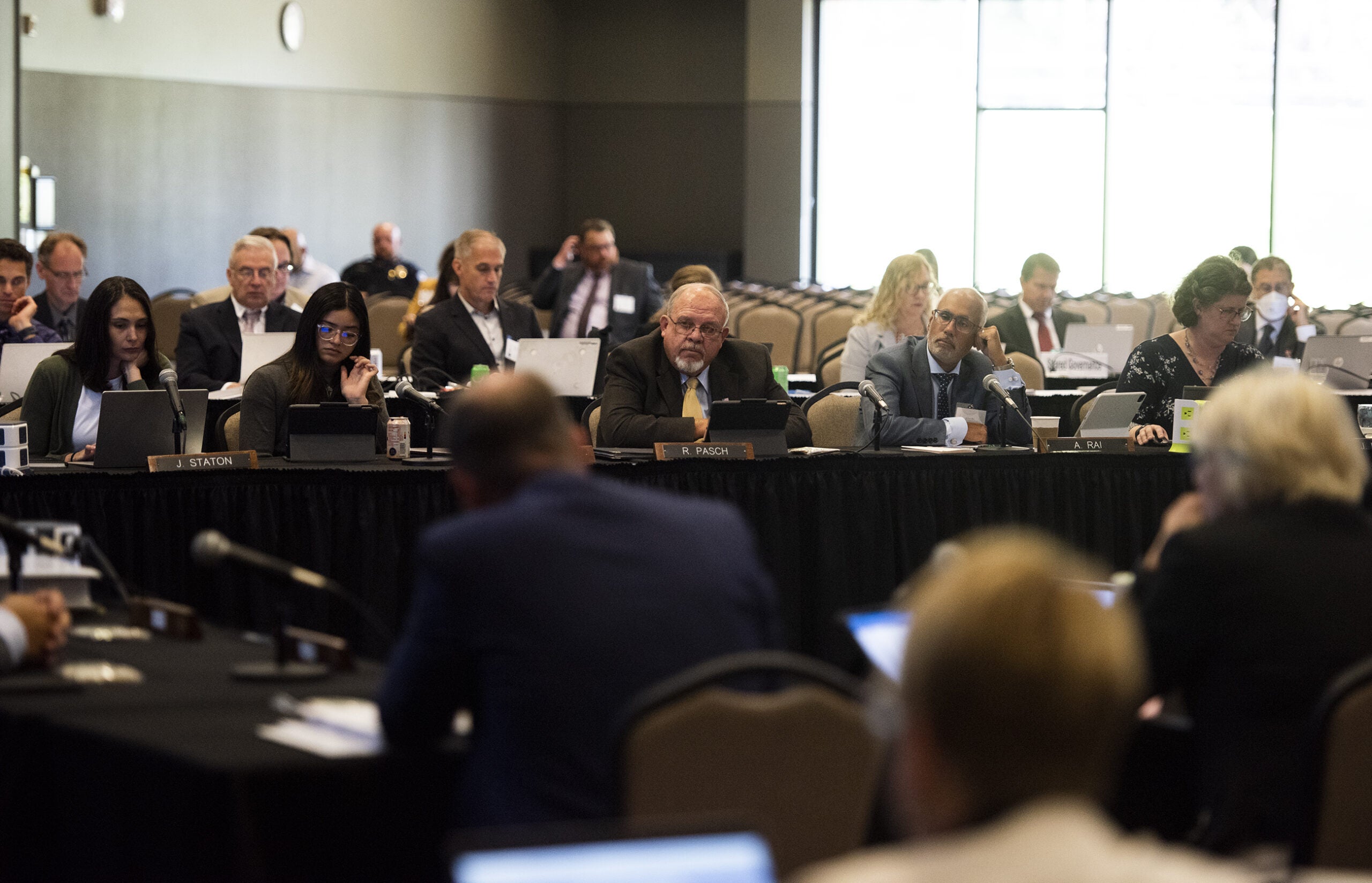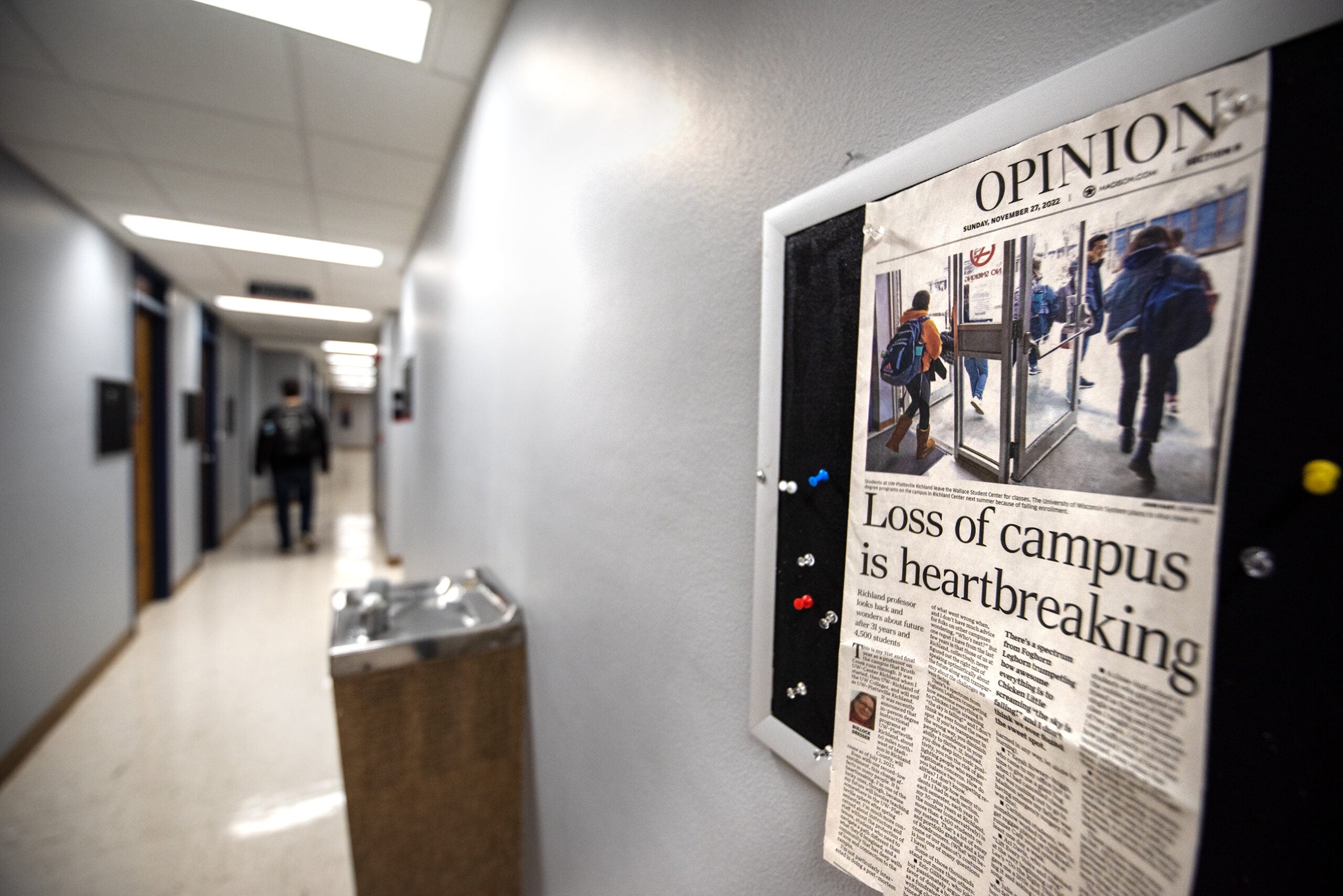The University of Wisconsin System is launching a new tuition program aimed at Midwest neighbors, hoping the program will bring more students back to Badger State colleges.
On Thursday, the UW Board of Regents approved the creation of the Nonresident Midwest Tuition Rate. It aims to reverse enrollment declines from neighboring states pulling out of a regional initiative known as the Midwest Student Exchange Program, or MSEP.
During the 2020-21 academic year, 2,828 students from states like Illinois, Indiana, Missouri, and Kansas enrolled at Wisconsin universities through the MSEP, which offers tuition discounts for nonresidents. That represents a 29 percent decline from 4,043 MSEP enrollees in 2017, according to system data.
News with a little more humanity
WPR’s “Wisconsin Today” newsletter keeps you connected to the state you love without feeling overwhelmed. No paywall. No agenda. No corporate filter.
Wisconsin saw the largest influx of students of all participating states during the 2020-21 school year and the third-lowest out-migration of 239 students, according MSEP data.
The regional initiative was created in 1994 and by 2019 10 states participated in the program.
“But what has happened over the last several years is partnering states have dropped out,” said Sean Nelson, UW System vice president for finance and administration, during a Thursday Board of Regents meeting. “Many institutions have dropped out and now we’re down to about eight states participating.”
For years, Illinois had the highest number of students participating in the exchange program and leaving the state. During the 2020-21 school year, 4,938 students enrolled at other Midwestern universities.
UW-Milwaukee Vice Chancellor for Finance and Administrative Affairs Robin Van Harpen told the board that the university was informed last year that Illinois was leaving the MSEP as well.
“Illinois is the largest source of nonresident domestic students for UWM,” Van Harpen said. “About 1,300 students come to us from Illinois and we were right in the middle of the pipeline of recruiting students, and suddenly there were questions about what the rate would be for Illinois students.”
Administrators in Milwaukee scrambled, Van Harpen said, and got approval from regents that year to continue offering tuition discounts to Illinois students on a temporary basis.
When asked by regents why Illinois may have decided to pull out of the MSEP, UW-Milwaukee Associate Vice Chancellor for Enrollment Management Kay Eilers told the board she speculated it was because there was “an exodus of students from their state.”
The most recent MSEP report shows Illinois saw no in-migration of students from participating states, while nearly 5,000 left for schools across the Midwest.
To keep the pipeline of students from Illinois flowing, regents on Thursday approved a new Nonresident Midwest Tuition Rate for students from Midwestern states attending all UW schools during the 2023-24 school year and beyond.
The rate will start at 150 percent of the cost paid by students from Wisconsin.
“But then after that, we’d study it and decide if there’s any room to generate more revenue on one hand,” Van Harpen said. “Or, do we need to be more competitive with respect to states around us that are reducing their tuition rates?”
Keeping the flow of students coming to Wisconsin is important for UW schools. Between 2010 and 2021, overall enrollment for the UW System has fallen by 10 percent. UW-Milwaukee has seen a steeper increase of 21 percent during that period.
The new Midwest tuition rate initiative does not affect existing tuition agreements through the Midwestern Student Exchange Program or the tuition reciprocity agreement between Wisconsin and Minnesota.
Wisconsin Public Radio, © Copyright 2026, Board of Regents of the University of Wisconsin System and Wisconsin Educational Communications Board.






